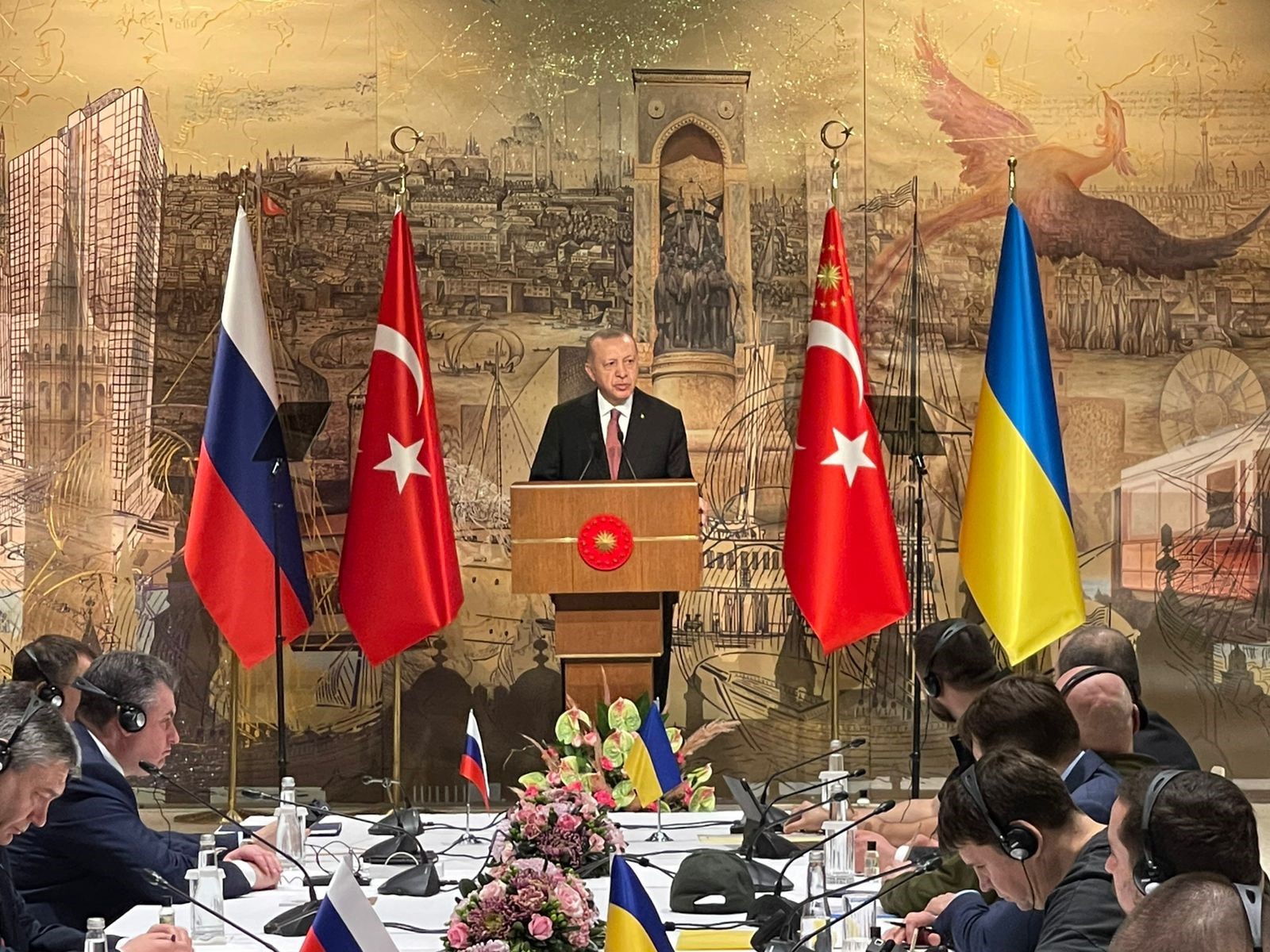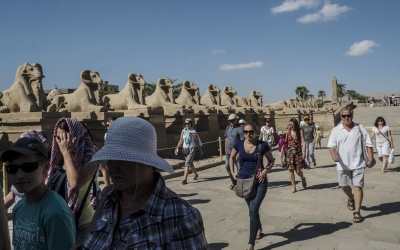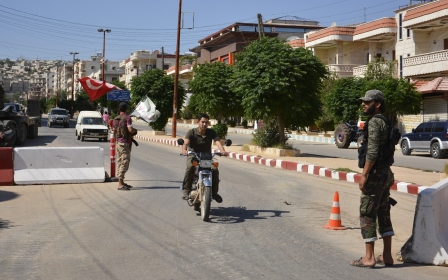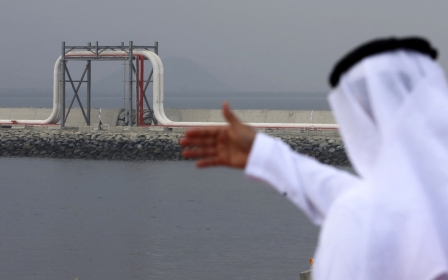Russia-Ukraine war: Peace talks take place in Istanbul as Russia announces pull back
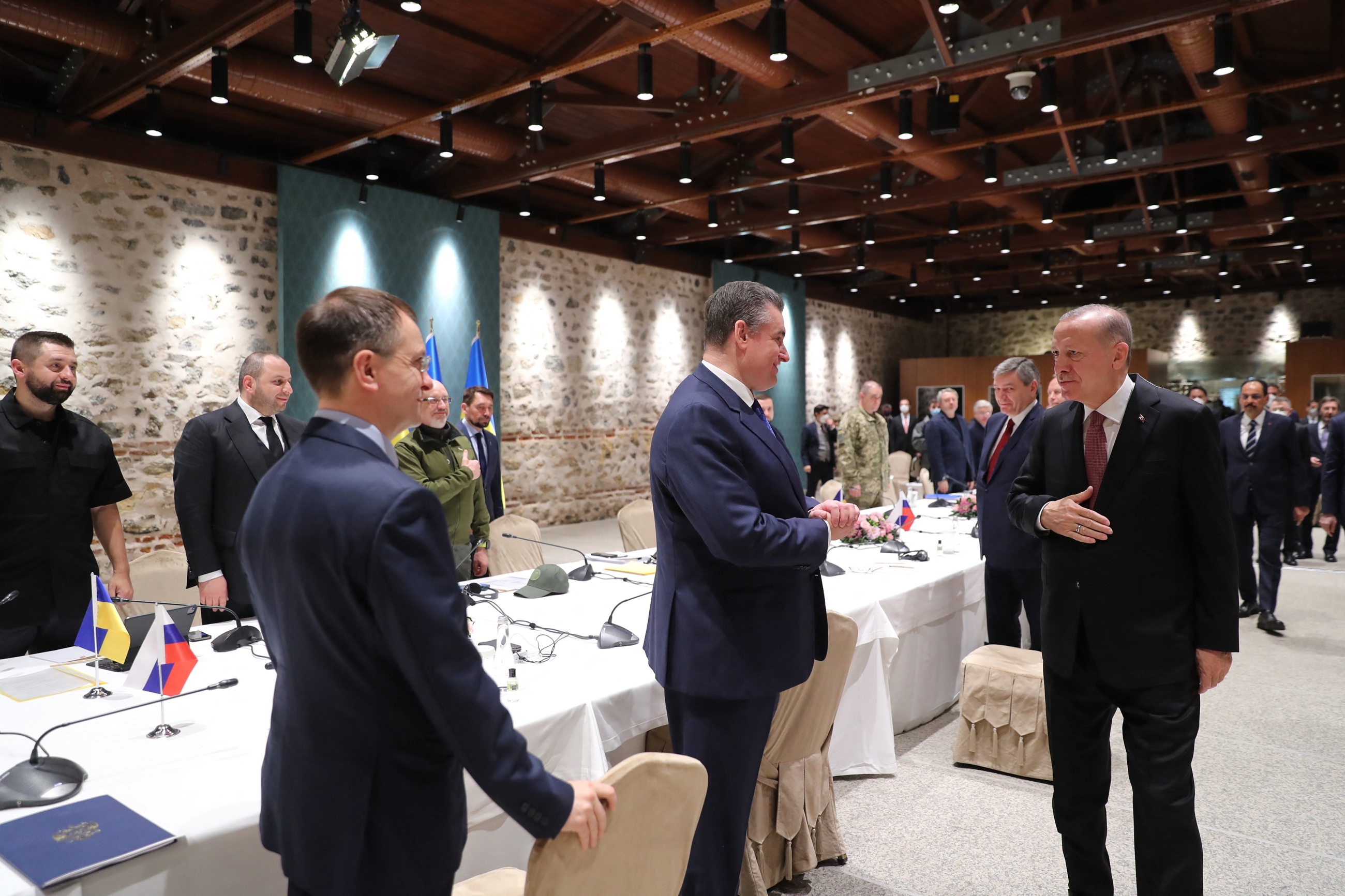
Ukrainian and Russian delegations held talks in Istanbul on a possible ceasefire on Tuesday, as Russia announced it would significantly scale back its military operations near Kyiv to give diplomacy a chance.
Russian negotiators said after the three-hour long talks that Moscow would fundamentally cut its military operations near Kyiv and Chernihiv.
“We will take diplomatic and military steps to de-escalate,” Vladimir Medinsky, the chief Russian negotiator, told journalists.
'Our first victory is moving the talks from Belarus to Turkey. We see Turkey as one of the guarantors of the security for Ukraine'
- David Arakhamiya, Ukrainian negotiator
The Ukrainian delegation on the other hand said that it had submitted a peace proposal to the Russian delegation that concerned the security guarantees that have been long sought by Kyiv.
“Our first victory is moving the talks from Belarus to Turkey. We see Turkey as one of the guarantors of the security for Ukraine,” said David Arakhamia, a Ukrainian negotiator.
New MEE newsletter: Jerusalem Dispatch
Sign up to get the latest insights and analysis on Israel-Palestine, alongside Turkey Unpacked and other MEE newsletters
“A new mechanism, a new international treaty will be signed according to our proposal,” he said.
The new treaty would see countries like Turkey, Germany, Canada, Poland and Israel designated guarantors, obliging them to provide assistance - even a no-fly zone - to Ukraine in case of Russian aggression in the future.
“It will work like Nato’s article five,” Arakhamia added.
In return, Ukraine will be a non-aligned, non-nuclear state, and will not host any foreign military bases - but will be permitted to join the EU.
Medinsky, the Russian negotiator, separately told the press that Russia wasn’t against Ukraine joining the EU. He also added that the guarantees would not cover the Crimea and Donbas regions.
Ukrainian negotiators said they propose to hold separate negotiations for Crimea for the next 15 years and during this time would not use military force in the region.
The Donbas and Luhansk areas, which are largely controlled by the Russian-backed separatists, will also be negotiated on separately by the Russian and Ukrainian presidents.
Ukrainian negotiators also expect to invite guarantor countries to the talks in the next two to three weeks.
The Ukrainian president’s advisor, Mykhailo Podolyak, said that if parties reach a deal, Ukraine will hold a referendum on the agreed terms and then the deal will also be ratified by the parliaments of the guarantor states.
Turkish Foreign Minister Mevlut Cavusoglu said that both sides made meaningful progress as they appeared closer to a deal, but said talks would not continue on Wednesday.
Medinsky, the chief Russian negotiator, said that the meeting was constructive and his delegation would report the Ukrainian proposal to Putin for consideration.
On Tuesday, Turkish President Recep Tayyip Erdogan welcomed the delegations at the Dolmabahce Palace, encouraging parties to find a way to end the hostilities.
“You have an historic responsibility to reach peace,” he said, describing both Russian President Vladimir Putin and Ukrainian President Volodymyr Zelensky as his "dear friends".
“We would like to host them in Turkey for future talks as well."
Erdogan said he would be travelling to Uzbekistan on Tuesday, but was leaving Turkish Foreign Minister Mevlut Cavusoglu to help the delegations.
Abramovich at talks
Video footage has appeared to show prominent Russian businessman Roman Abramovich inside the palace as well, sitting next to senior Turkish presidential spokesperson Ibrahim Kalin. Abramovich was earlier photographed by Russian media speaking to Erdogan as well.
Turkish sources previously suggested that Abramovich was functioning as a mediator between the parties. A spokesperson said earlier this week that he was poisoned during the talks in Ukraine earlier this month, though Abramovich appeared in full health on Friday.
Ukrainian officials say their main aim is to reach a ceasefire and create humanitarian corridors in areas that are encircled by Russian forces, such as the port city of Mariupol.
A source told Russian news agency Tass that they were expecting progress from the talks, which could continue on Wednesday.
A Financial Times report on Monday said that Russia was no longer requesting Ukraine be “denazified” and was ready to allow Kyiv to join the EU if it remained militarily non-aligned to Nato.
Regrouping ploy?
Turkish officials maintain an optimistic view on the negotiations but there are concerns among Ukrainian officials that Russia might be using the talks to reach a temporary ceasefire so as to regroup and stage a new offensive.
Russian troops have, with the exception of some progress near Crimea and Donbas, been bogged down on every front in Ukraine due to supply issues, tactical miscalculations and corruption within the army, according to several experts.
Turkey has emerged as an intermediary since the beginning of the war, supplying armed drones and ammunition to Kyiv yet also avoiding sanctioning Moscow.
Turkish officials have been keen to promote their country's role in the negotiations, while also eyeing up the millions of potential Russian tourists who will have few other options for holidays in the summer.
Turkey and Russia enjoy close trade relations, as Turkey buys around 40 percent of its gas from Russia.
In recent weeks, thousands of Russians who fled the country arrived in Turkey, bringing cash with them.
Reports indicate that rich Russians are already purchasing houses and properties in the country, yet Turkish banks continue to be wary of Russian citizens because of the issue of western sanctions.
One Russian citizen who recently moved to Turkey said that he had issues opening a bank account and others he knew were going through the same situation.
“I left the country over the illegal invasion but thought it would be over in a few days,” he said.
“Now we are all stuck here and don’t have access to banks.”
Middle East Eye delivers independent and unrivalled coverage and analysis of the Middle East, North Africa and beyond. To learn more about republishing this content and the associated fees, please fill out this form. More about MEE can be found here.


